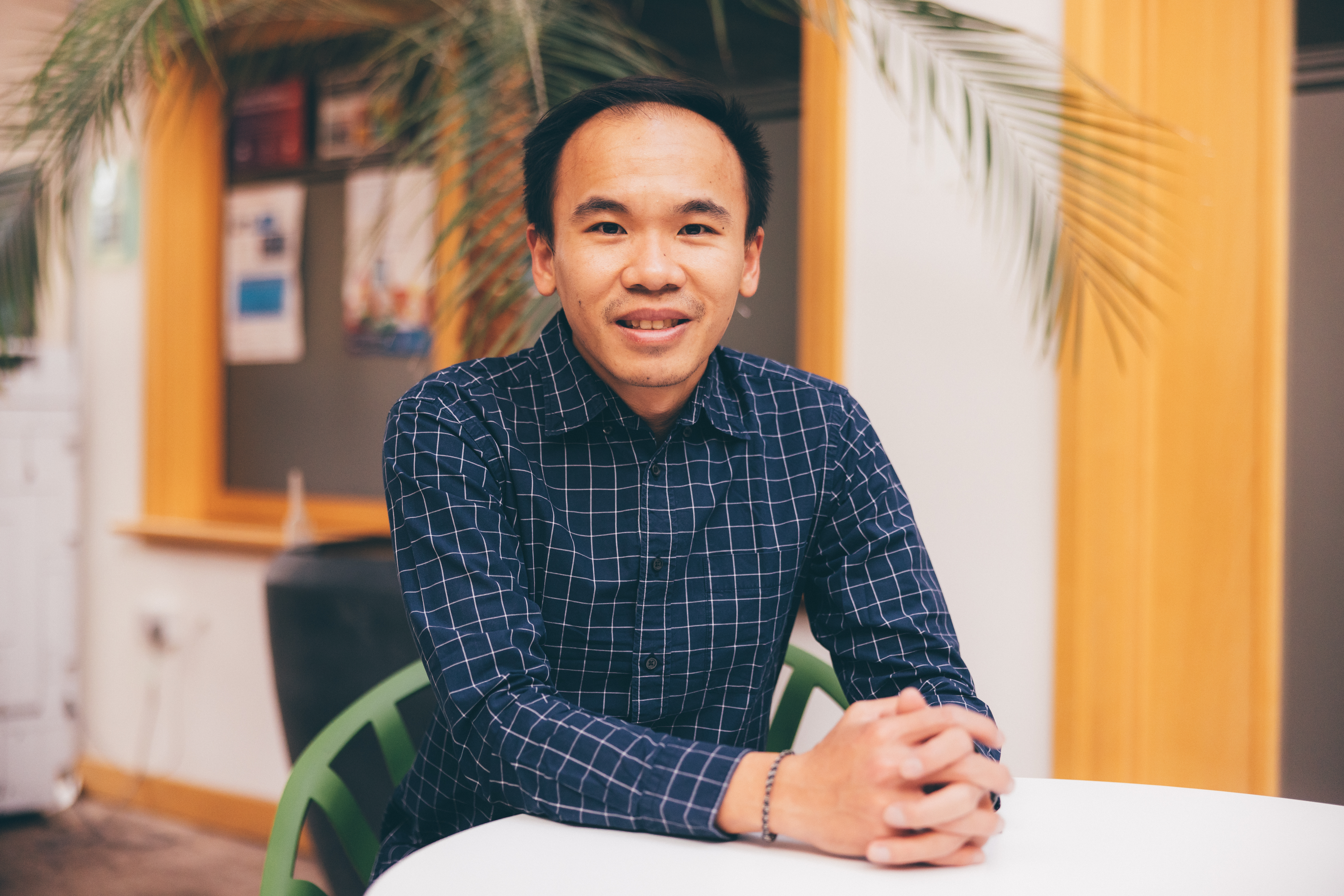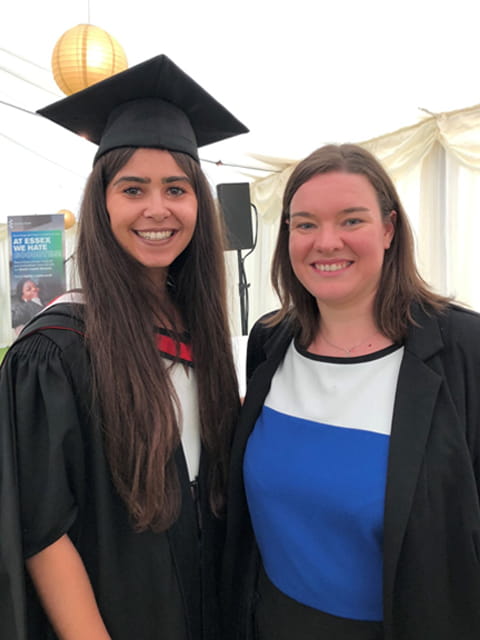Further your career in Human Resource Management
Arguably, there has never been a more exciting time to study Human Resource Management (HRM) as core HR topics such as diversity and inclusion, digital HRM and agile working take centre stage in organisations. HR jobs have been resilient in the face of difficult economic conditions over the last few years and the number of roles continues to grow. Public and private sector organisations alike are grappling with significant people management challenges and questions concerning how best to motivate and engage employees in the face of fast changing and difficult external conditions shaping the nature of work and the wider economy. As such, HR professionals are in high demand to support business leaders and act as leaders shaping the new people management agenda for more sustainable futures.
Our students have different reasons for choosing MSc Human Resource Management at Essex Business School. With different backgrounds and united in their goal to succeed and progress in the field of Human Resource Management, here is a snapshot of their stories.
Ferry Kurniawan, Recent graduate from Indonesia

Choosing Essex
I chose the University of Essex as it is known far and wide as one of the most internationally diverse universities. In my opinion, diversity is necessary these days to inspire creativity and drive innovation and I enjoyed learning together with other international students. I am fascinated about international human resource management and how it plays an important role in an organisation achieving its goals in the context of increasing globalisation.
My decision to study in the UK stems from my profound admiration for its structured educational system. Moreover, most HRM studies in the UK are accredited by the Chartered Institute of Personnel and Development (CIPD) which is extremely beneficial to HR professionals. Being CIPD-qualified will make me a lot more skilled as an HR Professional, knowledgeable, and ultimately more employable. I was also the recipient of a great scholarship award from the British Council.
Why a Masters?
I chose MSc Human Resource Management as it aligned with my professional experience. Despite having a slightly unrelated background in industrial engineering, this prior study turned out to be a strong foundation that equipped me to perform an HR role with a broader perspective. Working in an HR function for approximately 11 years now in various industries and with different cultures, I decided to deepen my HR skills and knowledge to benefit my future career. For example, I recently delivered and executed a group-wide people strategy project for my employer. This Masters was a chance to increase my specialist knowledge.
The introductory module, Principles and Practices in Human Resource Management, comprises all fundamental theories and practices in HRM. This taught me about the key relationship between HRM and strategic management.
I am honoured to be a part of the University of Essex Alumni community now, and was particularly proud of the diversity and equality I encountered at Essex. There were plenty of possibilities for me to meet new people, experience new things, and develop new abilities during my study at Essex. Here I found the technology and facilities plus everything you may need as a student very well-facilitated by the University.
Looking ahead
I’ve only just graduated but I have a strong desire to work for global companies. As I travel and interact with firms across the globe it will allow me to learn more while contributing to every company I work for. To achieve my goals, pursuing my Masters degree in HRM at Essex was the first big step. Having finished my course, I feel that now I am more well-equipped and ready to gain work experience in the UK for a reputable company. Moreover, being CIPD qualified makes me more skilled, knowledgeable, and employable.
Molly Stevens, Recent graduate from the UK

Choosing an accredited course
I knew I wanted to pursue a career in HR and I knew the Masters course offered at the University of Essex, which is CIPD level 7 accredited, would provide me with a very advantageous stance in order to do so. It isn’t a course that is offered widely, and the CIPD qualification is combined seamlessly with the course. Earning this CIPD qualification has fast-tracked my HR career without having extensive career experience, as the course offers ample practical and tangible knowledge.
One of my favourite aspects of the course was how it utilised a lot of psychology theory, which I had previously come across during my undergraduate degree in psychology, also at the University of Essex. My specialisation and area of interest is social psychology and understanding social behaviour. I was interested in how and why people behave and respond in certain social situations and how this can be influenced. I used this interest as the basis for choosing to pursue HRM because it links to organisational psychology and the theory of motivation and behaviour.
About my career
I am currently an HR officer at the Sigma Trust, a multi-academy trust comprised of 12 secondary and primary schools. My Masters qualification and the skills I developed whilst studying have helped me immensely in adapting to the unique and complex nature of HR management in the context of the public education sector.
My Masters degree has been extremely useful in my career, it has provided me with practical case study knowledge that has enabled me to gain employment and progress in my career, in my personal opinion, faster than without my Masters and CIPD qualification.
Emily Phillips, Recent graduate from the UK

Why a Masters?
I wanted to further my opportunities within HR as it is a highly competitive field and having a CIPD qualification is incredibly useful to get ahead. It was also incredibly useful to then have a specialist Masters in HRM as well. This ensured I had a greater knowledge and understanding of human resource management, which would enable me to be a more effective HR professional.
I enjoyed all aspects of the course to be honest as it relates closely to my area of work, but the modules relating to the human psyche and how people work were my favourites.
Student life and your time as a Masters student
I did not really participate in the typical student life at Essex as much as I could have as I was studying all the time. I did, however, enjoy a couple of times in the Students’ Union where I would have some food or a drink and unwind a little. I also used to enjoy the markets where you could sample and buy hot food and baked goods.
I was a full-time student however did balance two part-time jobs whilst doing my dissertation. To manage this, it was time management and sacrifice. I knew I wanted a top mark in my Masters, along with the benefits of the jobs and so, to be totally honest, I gave up having a life for the duration of my Masters and committed myself solely to studying. It paid off as I achieved a distinction.
What is your background and how did this shape your experience?
I did my undergraduate degree at Sheffield and went into marketing initially, before going into HR instead. I did my Masters quite early on in my HR career and so it definitely played a huge part in shaping my experience as I had a goal in mind to support my career and had a job lined up for the moment I finished my dissertation.
Since you have completed your Masters, what is your current role?
I’m now an HR Manager in the UK for Puzzel, an IT Services and IT Consulting firm, while collaborating cross-culturally with the European HR departments. It's worth mentioning that I lead payroll, performance, and absence. Moreover, I manage talent acquisition, disciplinaries, grievances and investigations, and work with recruitment agencies. I drive efforts for employee welfare, strengthening relations and enhancing engagements. I’m delighted with this progression, and I also went on to complete my CIPD Employment Law qualification.
My Masters qualification has been very useful to my career – it has granted me a lot of knowledge that I can now see most professionals have to learn as they go or as part of the job. I feel I have had a bit of a head start in that respect.
Study Human Resource Management at Essex
If you are looking to upskill or are interested in finding out new ways to support your HR development, take a look at our MSc Human Resource Management, a specialist Masters programme which aims to provide HR practitioners and recent graduates with the skills to navigate a successful career in HR and management.
Find out more about our MSc Human Resource Management









